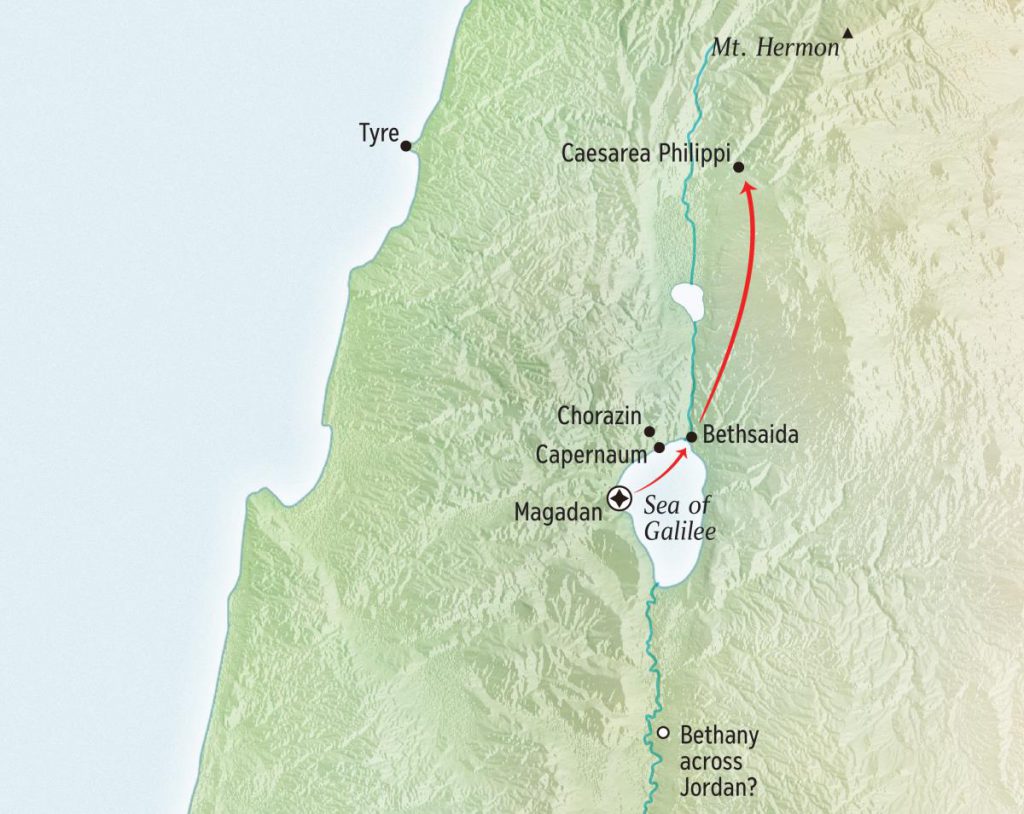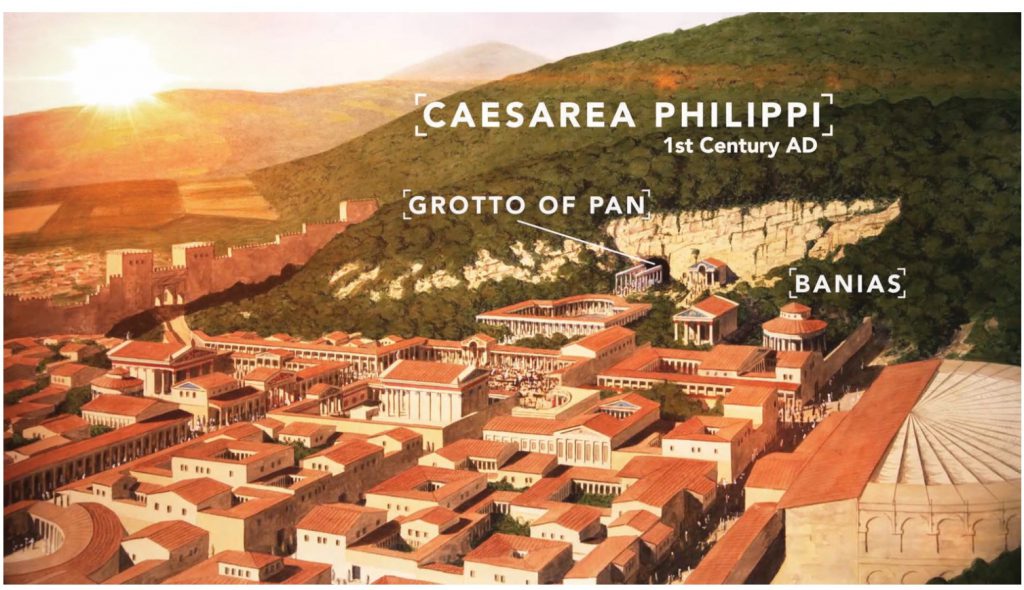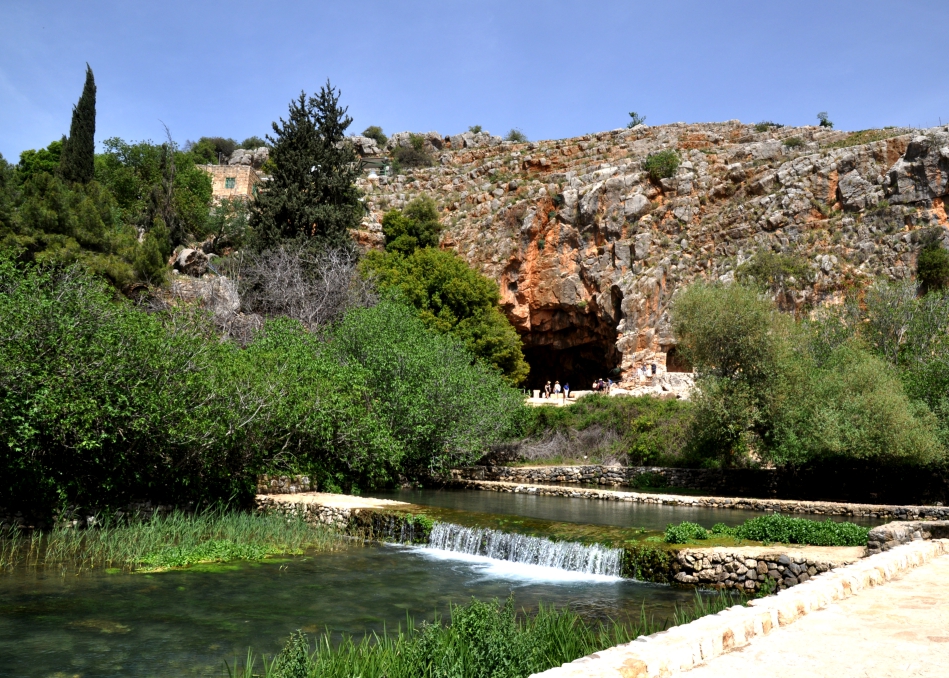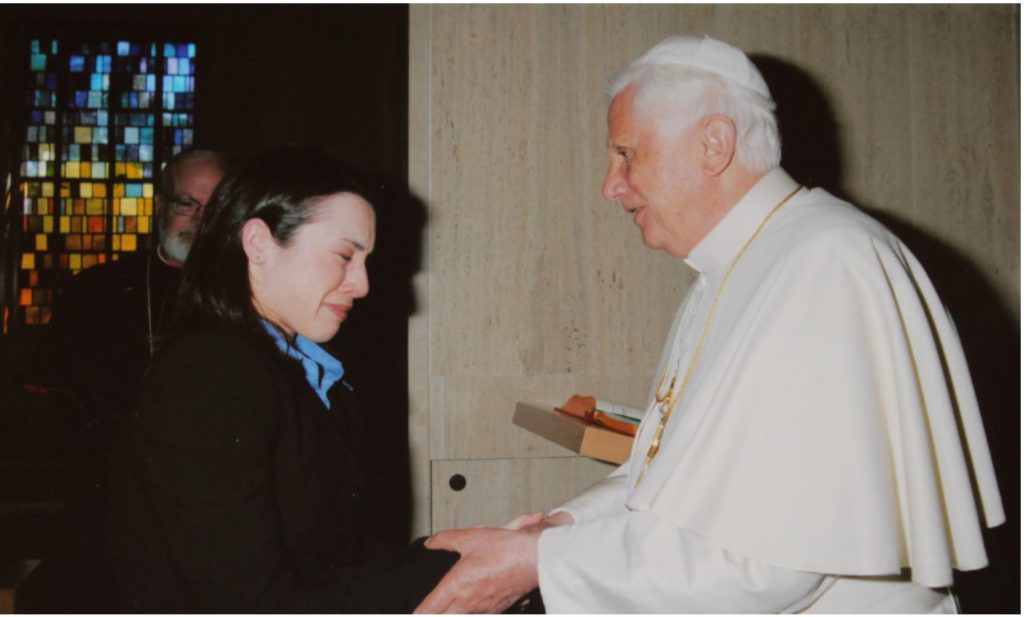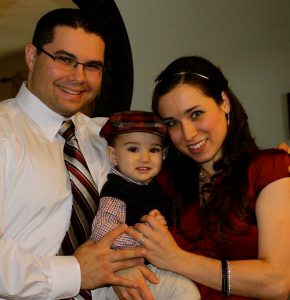Today, we’re going to reflect on how meeting Jesus changes us. To put it another way, when we encounter someone, we see ourselves in a new light. There is a 2015 documentary about photographer Rick Guidotti, who left the fashion industry and started taking pictures of people with disabilities to show their true beauty. Here’s a one-minute clip showing his impact (Please watch: 0:06-1:17).
The doctors to which Jenny’s referring couldn’t see reality, that the children are beautiful, but when Rick took photos, he reminded the mothers of their children’s identity.
Something similar happens when we meet someone who treats us with respect; we start seeing ourselves as good.
St. Mother Teresa once recounted, “I never forget when I brought a man from the street. He was covered with maggots; his face was the only place that was clean.  And yet that man, when we brought him to our home for the dying, he said just one sentence: I have lived like an animal in the street, but I am going to die like an angel… and he died beautifully…
And yet that man, when we brought him to our home for the dying, he said just one sentence: I have lived like an animal in the street, but I am going to die like an angel… and he died beautifully…
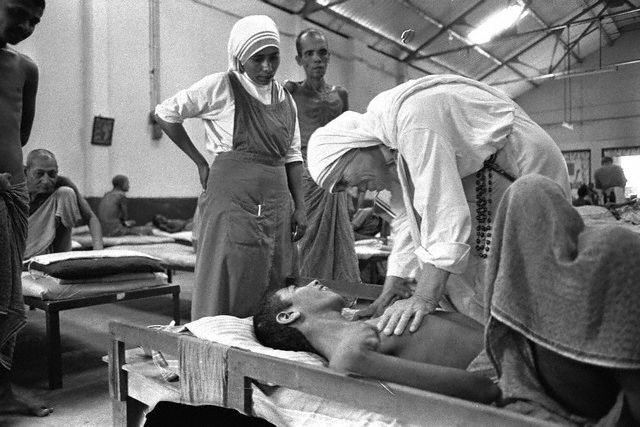
01 Jan 1976 — Mother Teresa Visits Patients At Kalighat Home For The Dying — Image by © JP Laffont/Sygma/CORBIS
And he having enjoyed that love, that being wanted… that being somebody to somebody at the last moment, brought… joy in his life”. He lived like an animal, but, when he met Mother Teresa, he saw his humanity.
Now let’s look at this dynamic in the Gospel, which begins, “Now when Jesus came into the district of Caesarea Philippi, he asked his disciples, ‘Who do people say that the Son of Man is?’” (Mt 16:13).
There are two possible reasons why Jesus takes the disciples to Caesarea Philippi: 1) Practically, He’s just been debating with the Pharisees, so He moves 30 kilometers north to Gentile territory to escape their surveillance;
2) Symbolically speaking, there is a large wall of rock where there’s a sanctuary to the god Pan, and so tradition has said that Jesus gave Simon the new name ‘Rock’ here, which is plausible, given that Jesus incorporated so much symbolism into His teachings and life.
When He asks, “‘Who do people say that the Son of Man is?’ and they respond, ‘Some say John the Baptist, but others Elijah, and still others Jeremiah or one of the prophets’” (16:13-14), the people are partially correct that Jesus is a prophet, but they’re missing the most important reality: that He’s God. That’s like saying Mother Teresa was a social worker. That dying man didn’t think he was dying like an angel because he met a social worker, but because he met a woman consecrated to Jesus. To know yourself you need to know Jesus correctly.
And Simon gets it right: “You are the Christ, the Son of the living God” (16:16). He understands Jesus’ identity because he had encountered Jesus personally, but he also was given and cooperated with supernatural grace—let’s not underestimate this.
Many people experience Jesus’ love and miracles in their lives but, when asked if He’s the centre of their lives, they hesitate; they don’t know His true identity.
Because Simon gets Jesus’ identity right, he gets his own identity right. Jesus says, “And I tell you, you are Peter (Petros), and on this rock (petra) I will build my Church” (16:18). You can see the original Greek words on your screens. Simon was called from all eternity to be the foundation of the Catholic Church, but only received this identity when he met Jesus. This is why our parish, St. Anthony’s, has to be laser focused on the Person of Jesus—to find life, we need to know Him.
Matthew Kelly, the Catholic author, writes that he’s always believed that God loved him, probably because he knew that his own father loved him. When his grandmother had just died, he said to his father, “I don’t believe in God anymore!” and his father didn’t overreact but said calmly, “That’s OK. God still believes in you.” Now that Matthew Kelly has his own children, he has a unique bedtime ritual for each: with Walter, they talk about the day, then watch a video of a family member, then Matthew tells him a story, and then they have prayer time. With Isabel, they do the same, but Matthew slowly dances with and sings to her. With Harry, Matthew slaps the book shut every time because it makes Harry laugh. Every night Matthew tells them, “No matter what happens, Daddy always loves you. And if you ever have a problem, you just come to Daddy and Daddy will help you fix it” (Rediscover Jesus, 43-44).
So, two generations of children encountering a loving father, who makes them understand that they are children of God, they are infinitely valuable.
When we meet Jesus, He gives us a mission to share Him with others. “To know Jesus is to work for Jesus,” as one bishop said about today’s Gospel (Daniel Mueggenborg, Come Follow Me, Year A, 261). After summer, we’re now going into a season of growth. We start Alpha in two weeks, on Thursday night, Sept. 7, 2023 and we want everyone to have a chance to know God and thus, themselves. Jesus is telling us to love and invite people. We’re going to pray during the intentions that we answer this call of Jesus, that we love people enough to invite them, that we don’t have fear, and that opportunities will arise to invite.
Let’s end by noting that the title Peter gives Jesus, ‘You are the Christ, the Son of the living God’ is basically the same title about which Jesus was asked during His trial, “Tell us if you are the Christ, the Son of God” (Mt 26:63). To understand Jesus is to know that He is a God Who suffers and dies for us, and Who overcomes all pain through His Resurrection.
For this reason, though I wanted to end with another happy story, I’m going to end with a stronger one that passes through the Cross to the Resurrection. This photograph tells a thousand words.
There it is! When we meet someone, in Faith’s case, an amazing priest, we realize that we are children of God, we are loved, and this is something we want to share with everyone! When we meet Jesus, it changes us.


